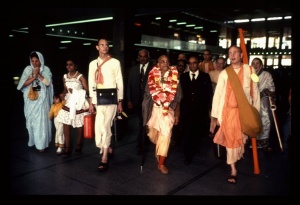CC Madhya 19.199-200 (1975): Difference between revisions
(Vanibot #0027: CCMirror - Mirror CC's 1996 edition to form a basis for 1975) |
(Vanibot #0019: LinkReviser - Revise links, localize and redirect them to the de facto address) |
||
| Line 2: | Line 2: | ||
<div style="float:left">'''[[Sri Caitanya-caritamrta (1975)|Śrī Caitanya-caritāmṛta (1975)]] - [[CC Madhya (1975)|Madhya-līlā]] - [[CC Madhya 19 (1975)|Chapter 19: Lord Śrī Caitanya Mahāprabhu Instructs Śrīla Rūpa Gosvāmī]]'''</div> | <div style="float:left">'''[[Sri Caitanya-caritamrta (1975)|Śrī Caitanya-caritāmṛta (1975)]] - [[CC Madhya (1975)|Madhya-līlā]] - [[CC Madhya 19 (1975)|Chapter 19: Lord Śrī Caitanya Mahāprabhu Instructs Śrīla Rūpa Gosvāmī]]'''</div> | ||
<div style="float:right">[[File:Go-previous.png|link=CC Madhya 19.198 (1975)|Madhya-līlā 19.198]] '''[[CC Madhya 19.198 (1975)|Madhya-līlā 19.198]] - [[CC Madhya 19.201 (1975)|Madhya-līlā 19.201]]''' [[File:Go-next.png|link=CC Madhya 19.201 (1975)|Madhya-līlā 19.201]]</div> | <div style="float:right">[[File:Go-previous.png|link=CC Madhya 19.198 (1975)|Madhya-līlā 19.198]] '''[[CC Madhya 19.198 (1975)|Madhya-līlā 19.198]] - [[CC Madhya 19.201 (1975)|Madhya-līlā 19.201]]''' [[File:Go-next.png|link=CC Madhya 19.201 (1975)|Madhya-līlā 19.201]]</div> | ||
{{CompareVersions|CC|Madhya 19.199-200|CC 1975|CC 1996}} | |||
{{RandomImage}} | {{RandomImage}} | ||
| Line 12: | Line 13: | ||
:ajānatā mahimānaṁ tavedaṁ | :ajānatā mahimānaṁ tavedaṁ | ||
:mayā pramādāt praṇayena vāpi | :mayā pramādāt praṇayena vāpi | ||
:yac cāvahāsārtham asat-kṛto | |||
:yac cāvahāsārtham asat-kṛto 'si | |||
:vihāra-śayyāsana-bhojaneṣu | :vihāra-śayyāsana-bhojaneṣu | ||
:eko | :eko 'thavāpy acyuta tat-samakṣaṁ | ||
:tat kṣāmaye tvām aham aprameyam | :tat kṣāmaye tvām aham aprameyam | ||
</div> | </div> | ||
| Line 22: | Line 24: | ||
<div class="synonyms"> | <div class="synonyms"> | ||
sakhā—friend; iti—thus; matvā—thinking; prasabham—forcibly; yat—that which; uktam—was said; he kṛṣṇa—O Kṛṣṇa; he yādava—O descendant of Yadu; he sakhā—O my dear friend; iti—thus; ajānatā—without knowing; mahimānam—greatness; tava—Your; idam—this; mayā—by me; pramādāt—out of ignorance; praṇayena—out of affection; vā—or; api—certainly; yat—whatever; ca—and; avahāsa-artham—for the matter of joking; asat-kṛtaḥ—insulted; asi—You are; vihāra—while enjoying; śayyā-āsana—sitting or lying on the bed; bhojaneṣu—while eating together; ekaḥ—alone; | sakhā—friend; iti—thus; matvā—thinking; prasabham—forcibly; yat—that which; uktam—was said; he kṛṣṇa—O Kṛṣṇa; he yādava—O descendant of Yadu; he sakhā—O my dear friend; iti—thus; ajānatā—without knowing; mahimānam—greatness; tava—Your; idam—this; mayā—by me; pramādāt—out of ignorance; praṇayena—out of affection; vā—or; api—certainly; yat—whatever; ca—and; avahāsa-artham—for the matter of joking; asat-kṛtaḥ—insulted; asi—You are; vihāra—while enjoying; śayyā-āsana—sitting or lying on the bed; bhojaneṣu—while eating together; ekaḥ—alone; athavā—or; api—certainly; acyuta—O my dear Kṛṣṇa; tat-samakṣam—in the presence of others; tat—all those; kṣāmaye—ask pardon; tvām—unto You; aham—I; aprameyam—who are unlimited. | ||
</div> | </div> | ||
| Line 29: | Line 31: | ||
<div class="translation"> | <div class="translation"> | ||
" 'I have in the past addressed You as "O Kṛṣṇa," "O Yādava," "O my friend" without knowing Your glories. Please forgive whatever I have done in madness or in love. I have dishonored You many times while we were relaxing, lying on the same bed or eating together, sometimes alone and sometimes in front of many friends. Please excuse me for all my offenses.' | |||
</div> | </div> | ||
==== PURPORT ==== | ==== PURPORT ==== | ||
<div class="purport"> | <div class="purport"> | ||
This is a quotation from | This is a quotation from Bhagavad-gītā ([[BG 11.41-42 (1972)|11.41-42]]). In this verse, Arjuna is addressing Kṛṣṇa, who was exhibiting His universal form on the Battlefield of Kurukṣetra. | ||
</div> | </div> | ||
Latest revision as of 15:44, 18 September 2020

A.C. Bhaktivedanta Swami Prabhupada
TEXTS 199-200
- sakheti matvā prasabhaṁ yad uktaṁ
- he kṛṣṇa he yādava he sakheti
- ajānatā mahimānaṁ tavedaṁ
- mayā pramādāt praṇayena vāpi
- yac cāvahāsārtham asat-kṛto 'si
- vihāra-śayyāsana-bhojaneṣu
- eko 'thavāpy acyuta tat-samakṣaṁ
- tat kṣāmaye tvām aham aprameyam
SYNONYMS
sakhā—friend; iti—thus; matvā—thinking; prasabham—forcibly; yat—that which; uktam—was said; he kṛṣṇa—O Kṛṣṇa; he yādava—O descendant of Yadu; he sakhā—O my dear friend; iti—thus; ajānatā—without knowing; mahimānam—greatness; tava—Your; idam—this; mayā—by me; pramādāt—out of ignorance; praṇayena—out of affection; vā—or; api—certainly; yat—whatever; ca—and; avahāsa-artham—for the matter of joking; asat-kṛtaḥ—insulted; asi—You are; vihāra—while enjoying; śayyā-āsana—sitting or lying on the bed; bhojaneṣu—while eating together; ekaḥ—alone; athavā—or; api—certainly; acyuta—O my dear Kṛṣṇa; tat-samakṣam—in the presence of others; tat—all those; kṣāmaye—ask pardon; tvām—unto You; aham—I; aprameyam—who are unlimited.
TRANSLATION
" 'I have in the past addressed You as "O Kṛṣṇa," "O Yādava," "O my friend" without knowing Your glories. Please forgive whatever I have done in madness or in love. I have dishonored You many times while we were relaxing, lying on the same bed or eating together, sometimes alone and sometimes in front of many friends. Please excuse me for all my offenses.'
PURPORT
This is a quotation from Bhagavad-gītā (11.41-42). In this verse, Arjuna is addressing Kṛṣṇa, who was exhibiting His universal form on the Battlefield of Kurukṣetra.